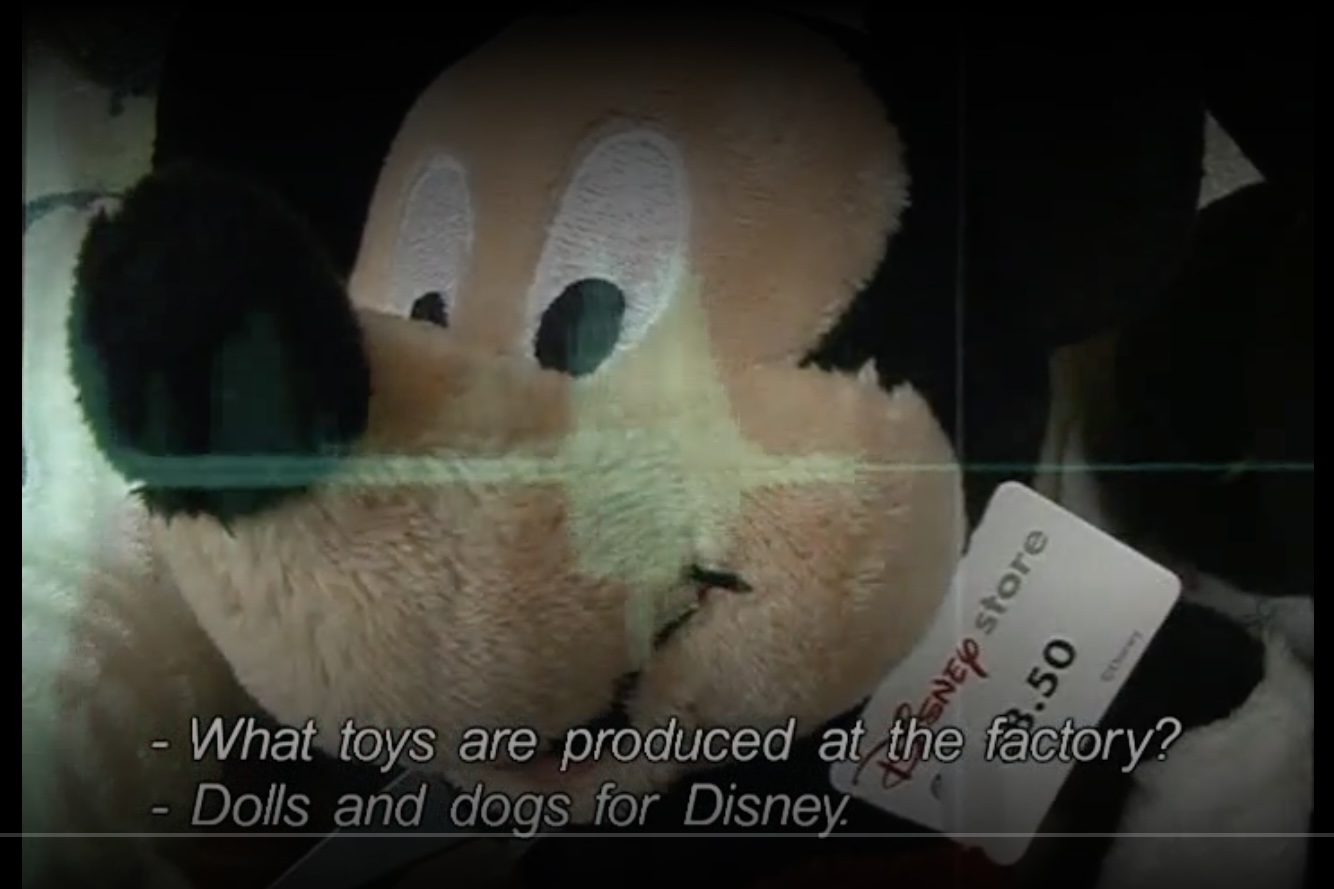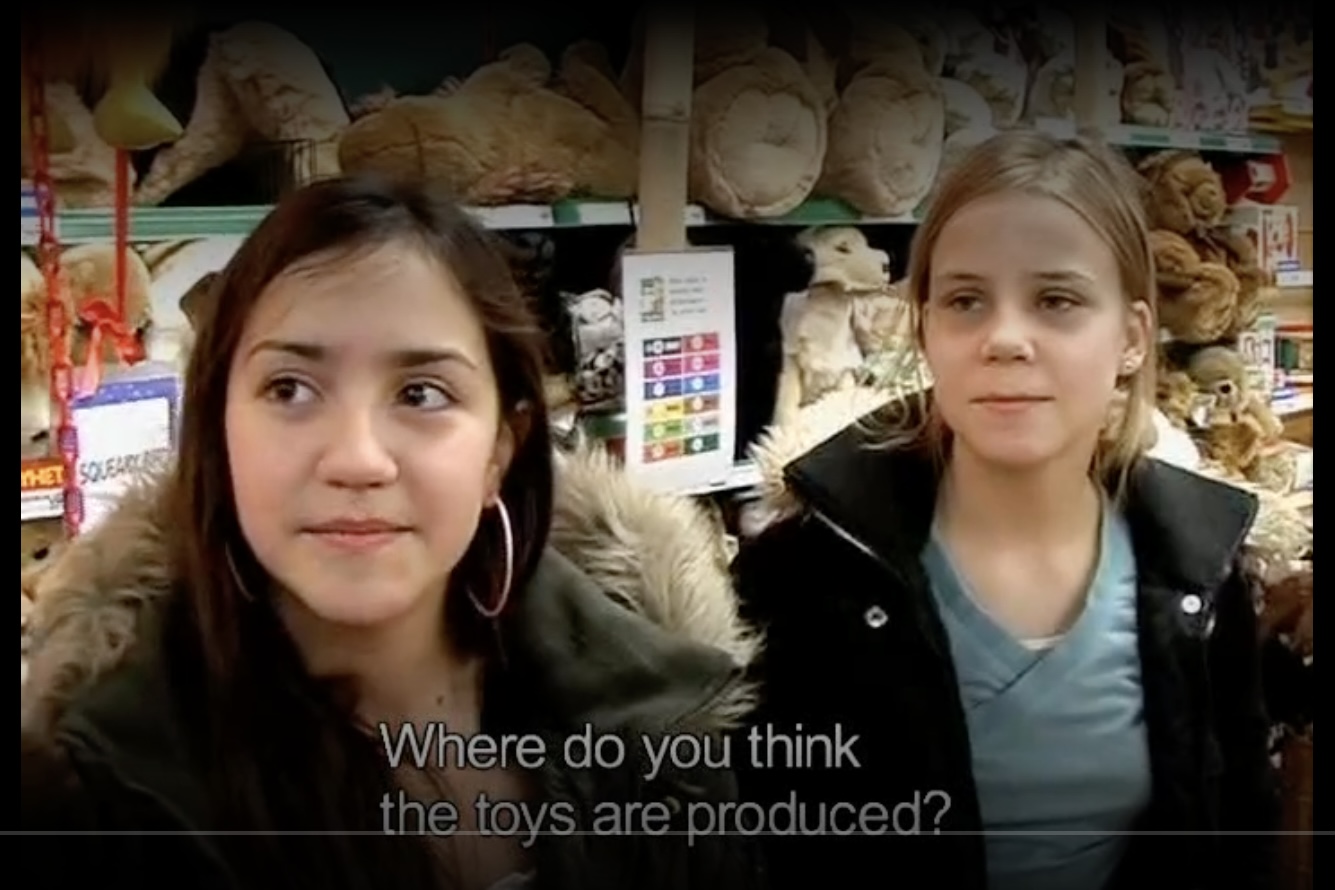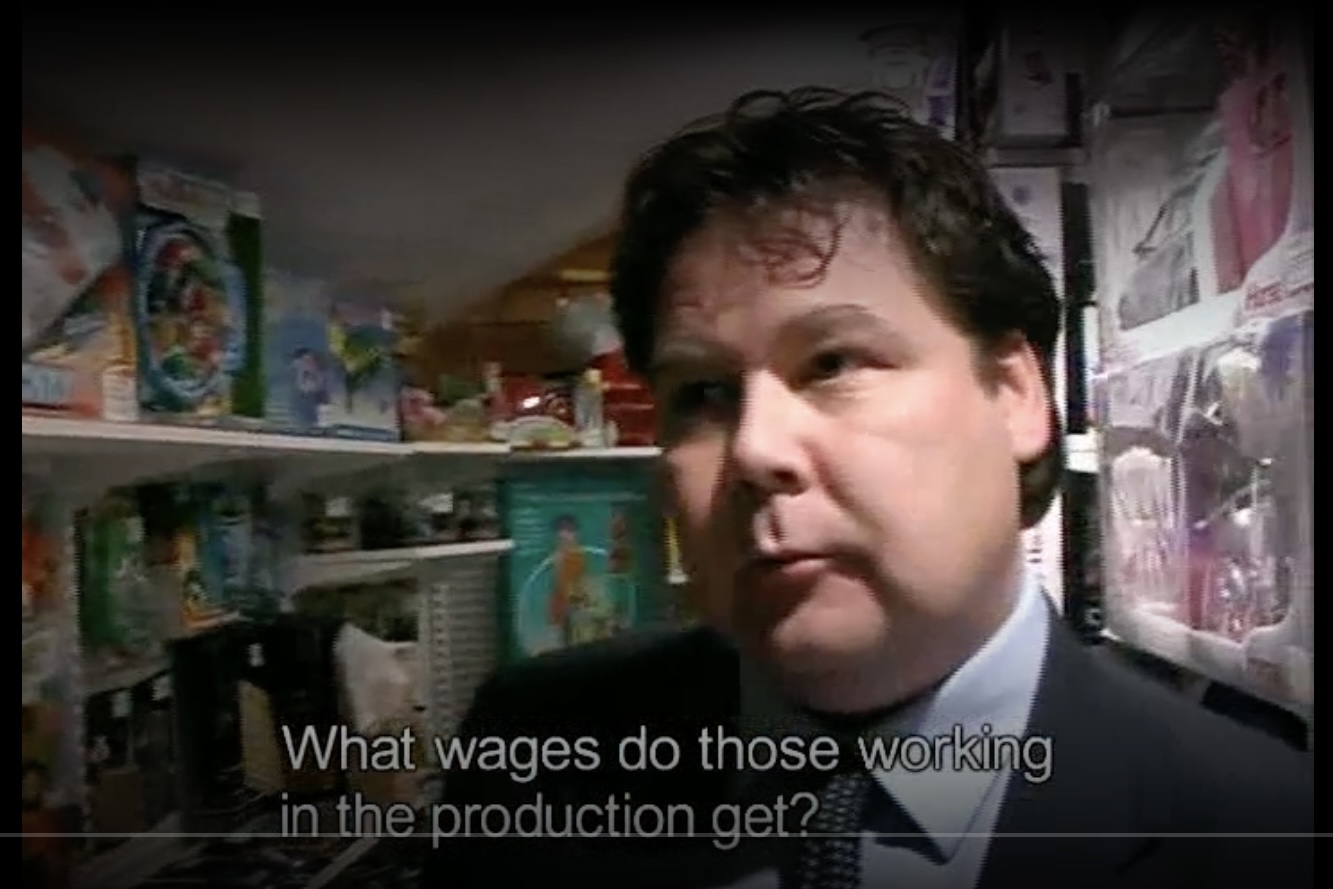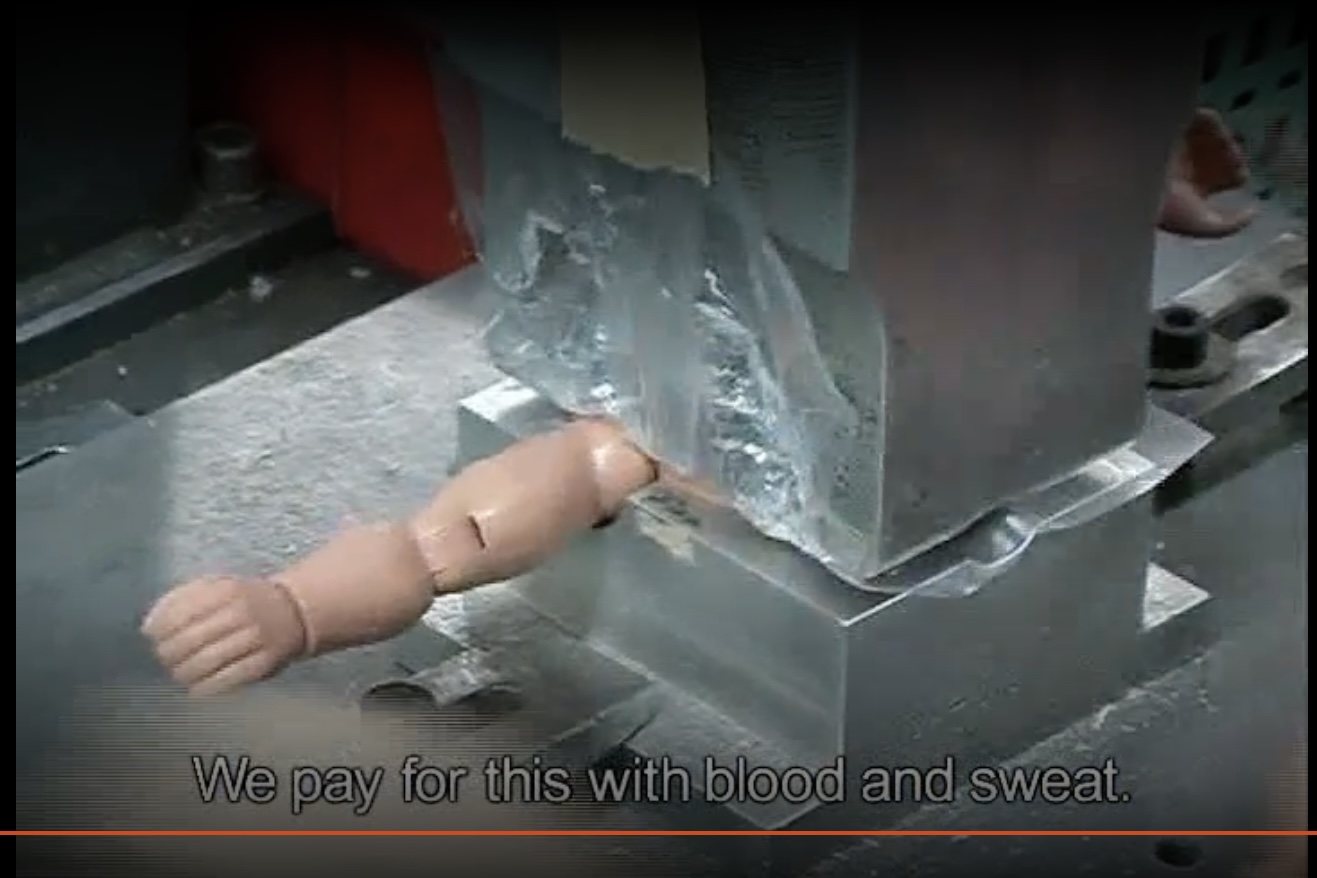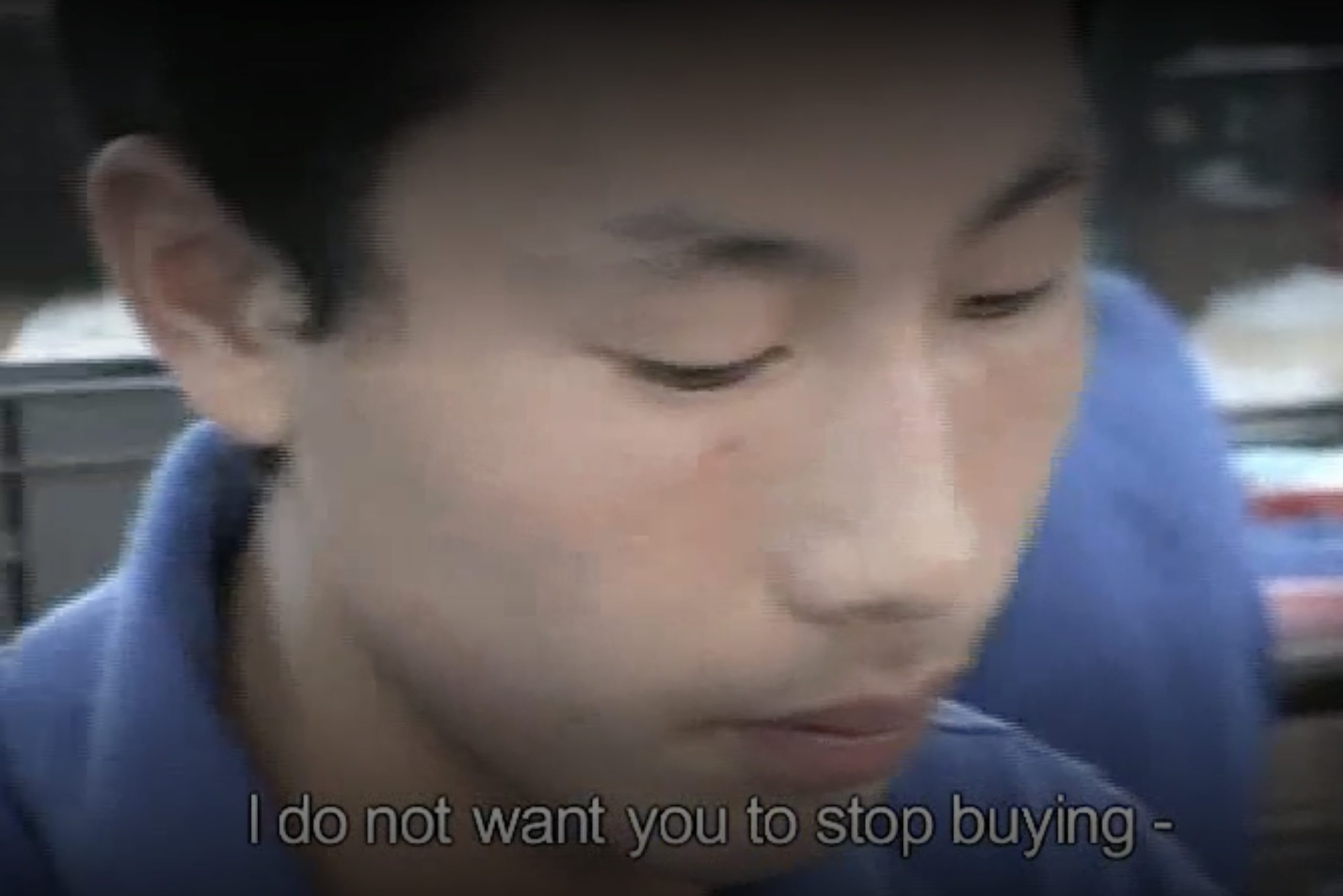
followthethings.com
Electronics
“Phone Story“
An iPhone, iPod Touch & iPad game created by Paolo Pedercini & Michael Pineschi for Molleindustria in partnership with the Yes Lab.
Banned from the App Store. Google Play archived page here. Play online here. Game website here.
Imagine you’re on Apple’s App Store looking for a new game to play on your iPhone or iPad in September 2011. You see one called Phone Story. Its levels show how your iPhone or iPad were made. The rare metals that make them work so quickly – like Coltan – are extracted from the soil in the Democratic Republic of The Congo by children. The devices are made in a factory in China where the regime is so relentless that workers jump to their deaths from the roof. When a new model comes out, people queue for days and it seems they would run across a busy highway to get to the store before someone else. And then there’s all the e-waste that is generated when the phones that are replaced get thrown away. So, how do you progress through the levels? You’re a soldier who has to bash kids on the back of the head if their Coltan-digging slows. You’re ambulance crew trying to catch workers trying to jump to their deaths from the factory roof. You get the picture. This ‘first anti-iPhone iPhone game’ is hilariously cruel, tasteless, offensive, meta. But it’s 100% based on what’s happening in Apple’s supply chain right now. And what’s more offensive: the game or what it depicts? 901 people pay 99cents and download it. But it’s only available for 4 days, before Apple remove it. People speculate. How on earth did it get there in the first place? And what does its removal mean for free speech? Phone Story went viral as the ‘game Apple didn’t want you to play’. But, you could still play it on your Android phone or computer. You can still do the latter, here. How well would you want to do? What does it mean to get a high score?
Page reference: Eeva Kemppainen, Charlotte Edwards, Toby Bain, Wilhelm Wrede, Sophie Biddulph & Jamie Hall (2012) Phone Story. followthethings.com/phonestory.shtml (last accessed <insert date here>)
Estimated reading time: 46 minutes.
Continue reading Phone Story ![]()

